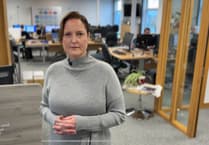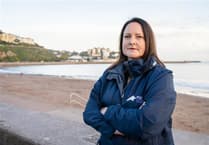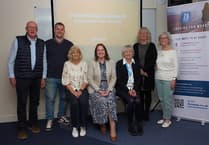THE main bill this week was the second reading of the Investigatory Powers (Amendment) Bill which amends the Investigatory Powers Act 2016 to allow the police and intelligence agencies access to internet records, for the purposes of their surveillance, writes MP Anne Marie Morris.
While no supporter of excessive access to private information, in light of the increasing threat levels and war in Gaza and Ukraine already spilling over, I think we must be vigilant and give these services all the power they need to thwart terrorist plots in their tracks.
Wednesday was a fiery - and a sad day in Parliament. What should have been a sensible opposition day debate about Gaza turned into a drama as the Speaker of the House broke with parliamentary protocol about how the motion and amendments to it should be voted on.
Whether motivated by MPs security or the splits in the Labour party we will never know. But it was not Parliament’s finest hour. It harks back to those awful days when John Bercow sat in the chair causing chaos for Brexit votes. The impartiality of the speaker must be paramount. Abandoning protocol was not the solution to security concerns for MPs. That needs to be dealt with through appropriate security and protection to ensure free speech is never compromised in this House.
The Treasury Select Committee, on which I sit, had one of its regular sessions with the Governor of the Bank of England and his team. We wanted to know where he believed inflation was heading, why and what factors would be taken into account when the next interest rate vote came.
While the view was that inflation was steadying at 4per cent, the interest rate vote would depend largely on what happened to wage inflation. Wage rises have fallen back, but there is still great uncertainty in the labour market not helped by the challenge of working out what the true unemployment figures are.
Those seeking work are on the record. But there is no way of working out the numbers of those who are unemployed and not seeking work. The ONS were looking at a new way of reporting unemployment to address this.
The British have a reputation of always talking about the weather. Apparently, we have a climate with some of the greatest extremes in the same place. There are hotter and colder places in the world, but it is the variation which makes it difficult to make infrastructure - roads, railways, electric cables - resilient.
The Public Accounts Committee, on which I also sit, this week looked at extreme weather events and how the government was not only planning to be better equipped for such events but how it was planning to build in resilience by adapting how we do things, indeed how we live our lives.
We had the lead department DEFRA, the Cabinet office and the Treasury telling us how they were managing risk. I think it’s fair to say we were not impressed. We will be publishing our report after Easter.
Friday was spent seeing what resilience measures could be put in place around the Powderham Castle estate, to maximise the resilience of the land in order to reduce the flow that reaches Kenton when there are bad storms.
Devon County Council are doing a hydrology report which will be ready in about six months on which a proper resilience plan can be based. Once a better understanding of water flows and the water retention of the land is achieved, a plan to address the dreadful flooding events that Kenton now too regularly experiences can be prepared.
And finally, a great visit to the Urgent Treatment Centre at Newton Abbot Community Hospital. The x-ray suite has been upgraded and for the time being the hospital is the home to a CT and MRI scanner. A good fact-finding visit so I know what it is the team need from government to be the best they can be.
As always, I have upcoming surgeries. We have some in Kingsteignton and Newton Abbot in March. If you would like to book a surgery appointment (in-person or virtual) or raise a specific issue, please call my office on 01626 368277 or email [email protected] to arrange an appointment.





Comments
This article has no comments yet. Be the first to leave a comment.